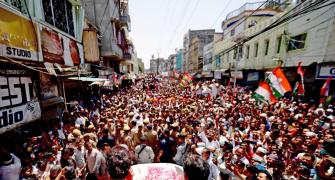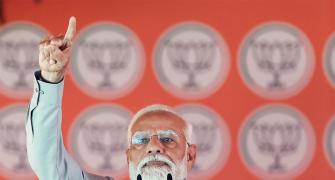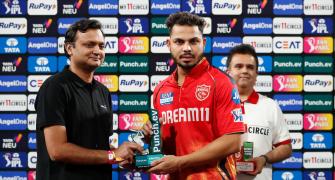On December 4 last year, the stock of the world's largest drugmaker, Pfizer, fell 10.6 per cent, wiping out more than $21 billion in market value in a single day.
Two days ago, the company had stopped late-stage trials on torcetrapib, a cholesterol treatment drug intended to prolong Pfizer's dominance in this segment, due to adverse results. Indian companies have had their own share of heartbreaks.
R Rajagopalan, a 35-year industry veteran and head of discovery research at Dr Reddy's, gets a faraway look in his eyes.
In January 2003, Novartis discontinued further development of DRF-4158, an insulin sensitiser for diabetes out-licensed by Reddy's.
In October 2004, Novo Nordisk terminated clinical development of balaglitazone, another insulin sensitiser, as pre-clinical results did not suggest sufficient competitive advantage.
A month later, Schwarz Pharma discontinued Phase II clinical trials on Ranbaxy's molecule for treatment of benign prostate hyperplasia due to unclear pre-clinical findings.
To put this in context, out of a thousand molecules tested, only one eventually hits the market and consumes $1-1.2 billion. The Indian pharma industry's total profit would be under $2 billion, Glenmark Pharma CEO Glenn Saldanha points out.
There is the India advantage. The country has 5,000 plants, of which 2,000 have medicinal properties.
Global trials would cost the same, but India is a third cheaper up to Phase II trials. The pace can be faster.
"The cycle time can be reduced. If you can launch a $1 billion a year (in sales) drug three months earlier, you straightaway make an additional $250 million," says Pradeep Bhatnagar, head of new chemical research with Ranbaxy.
However, as ever so often, the country moves in opposite directions.
"We can do Phase-I (trials) in India but the IND (investigational new drug) requirement is more stringent here than in the West. The whole framework is not an enabling one. We can't do toxicology testing on large animals in India. We have to do it in the UK, at four to five times the cost," says Ranbaxy's Chief Executive Malvinder Mohan Singh.
To hedge the risk, Indian companies have sacrificed pride and often license out a new molecule to a global giant during Phase II trials. Reddy's has farmed out drug development to a new company, Perlecan Pharma, and sold chunks of equity in it to ICICI Venture Funds and Citigroup Venture.








